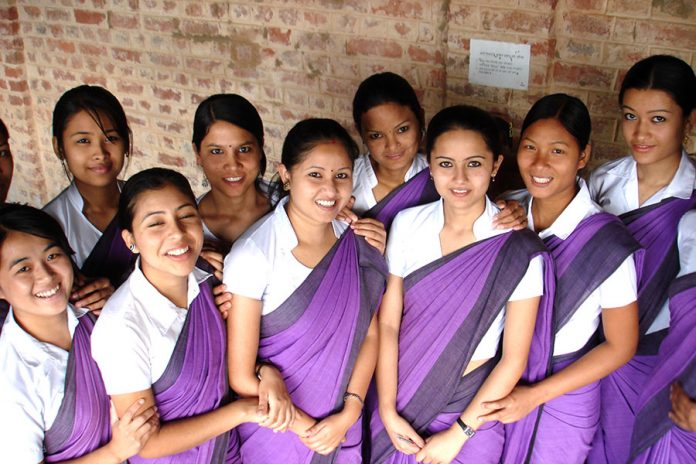There are over 100 institutes producing trained nurses in the country. And, 3000 nurses graduate each year. Yet, when you go to a hospital, you don’t get efficient service because there are far fewer nurses than what the service demands. Reason: this country has long been gripped with the brain drain, and solution seems nowhere in the sight, as nurses keep on going abroad in search of greener pastures and the government is not doing anything to retain them. A case in point: a nurse, Mandira Poudel, 26, says many of her friends have already landed in the West. “Among the rest, there’s hardly anyone who’s not trying to go,” says Poudel, who has been serving in the Koshi Zonal Hospital for the last three years, adding that the United States is her ultimate destination. Another nurse, Niva Devkota, has a similar dream. But, Devkota says she will stay in Nepal only if there is better working environment and more pay. “Our job demands very hard work,” says Tara Sunuwar, 27, a staff nurse at the Bir Hospital. “But we neither get good salary nor is there opportunity in Nepal,” adds Sunuwar while nursing a patient in the general ward of the hospital. Though Sunuwar was denied visa to the United Kingdom once, she is going to tray again soon. “I will try my best go to the UK.” As there are insufficient working nurses at the hospital, she often does overtime, which has affected her own health. According to data provided by the Nepal Nursing Council (NNC), there are 16,206 nurses — including 8,190 ANMs (Auxiliary Nurse Midwives), currently employed in Nepal. However, this number fills only 45 to 50 percent of quotas of the nurses required in the health institutions. The trend of nurses going abroad, according to NNC, started about six years ago and the number of those going abroad has gone up sharply in the last two years. Though most of the nurses going abroad get a letter from the NNC, some don’t, making it difficult to calculate the exact number. Nowadays, according to Ishwori Khanal, registrar of the NNC, five nurses on average come here to make the letter each day. Only old ladies may remain Nursing professionals fear that if the current trend of young and talented nurses going abroad is not checked, only old ladies may remain here in the not-so-long future. According to Ishwari Shrestha, the matron at the Bir Hospital, patient-nurse ratio at this biggest government hospital of Nepal is 20: 5. “That’s why nurses show irritation and cannot give quality service,” says Shrestha. For the total 489 beds in the hospital, there are only 189 working nurses.
“According to international standards,” says she, “there should be one nurse per patient.” “All young girls try to go abroad as their job here is very demanding and the pay is low. It seems only old ladies will be working as nurses here in the future,” sighs Shrestha. The picture is no different at the Tribhuvan University Teaching Hospital (TUTH). Matron Jamuna Sayami, under whom 300 nurses are currently working, says that she has not been able to fill up the entire quota of nurses in the hospital despite all her efforts. “Almost all of the young nurses are in the process of going abroad,” says Sayami. “And when they get a visa they fly away without any notice.” ‘Health sector needs policy revamp’ Health professionals point out that a major policy revamp is needed in order to keep health institutions running smoothly. “We’re still following the planning framed some 20 years ago,” says Jamuna Sayami of TUTH. “While making strategies or policies the government should take every aspect of this sector into account.” Shanta Rai, the vice-president of Nepal Nursing Association, says that the government has been apathetic to their demands for revamping the overall management of the nursing sector. “We’ve been demanding increased salary and quota for nurses in the government hospitals, but the standard excuse is budget constraints,” she claims. Sayami says that critical cases are regularly increasing in hospitals, which means that Nepal needs extended human resources in the health sector. Let alone the inadequacy of nurses in rural areas, according to her, there’s a big lack of sufficient number of nurses in the hospitals and nursing homes in the capital too. Spokesperson at the Health Ministry, Arjun Bahadur Singh, says that reforms in this sector are in the pipeline. The country, according to Singh, will soon witness a well studied plan and structures implemented. “We have already started programs to reform this sector.”
– Anjali Subedi









































